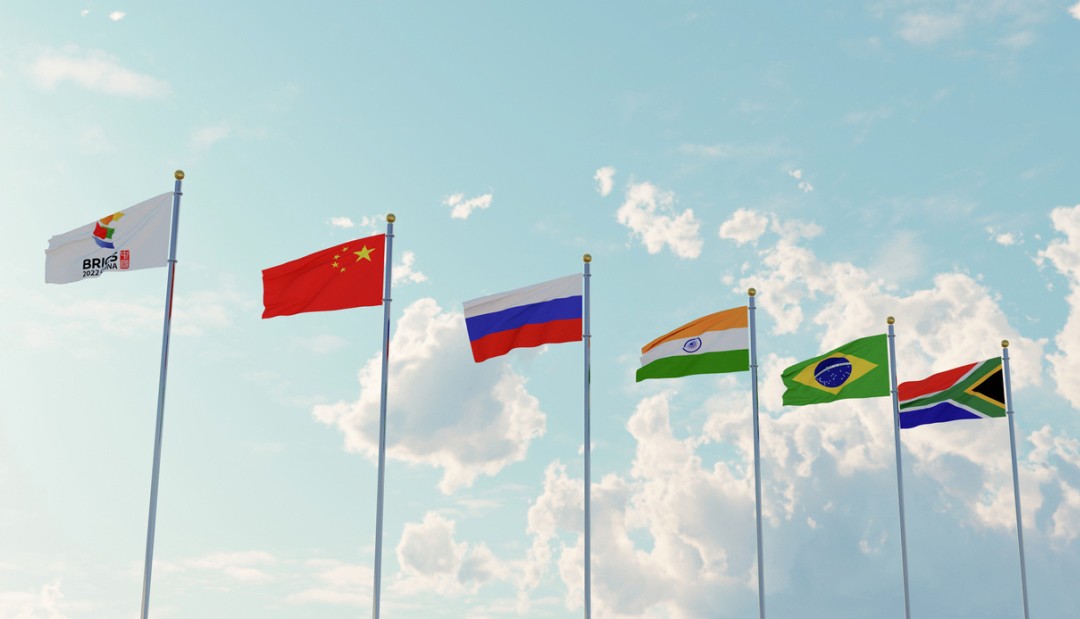Alexey Ivanov, Director of the International BRICS Competition Law and Policy Centre at the HSE University, noted in an interview with TASS that this topic will become more and more relevant as the number of BRICS members grows.
The BRICS countries may start institutionalizing the antitrust sphere of the alliance in 2024, when Russia assumes the chairmanship. Alexey Ivanov, Director of the International BRICS Competition Law and Policy Centre at the Higher School of Economics University, expressed this opinion in a conversation with TASS. He noted that this topic will become more and more relevant as the number of the association's participants grows.
"Currently in BRICS joint regulatory work is practically not formalized and not institutionalized unlike in communities of Western countries. This could still work in a small club of five founding BRICS countries, but may become a problem after expansion. Full-fledged institutionalization of cooperation on the antitrust track will definitely be a serious breakthrough in BRICS cooperation and a notable success of the Russian presidency, if this decision can be taken next year,"
Ivanov believes.
In 2024, the BRICS countries will have a unique opportunity to agree on the creation of their first joint institution to regulate the global economy, which could be the institution of antitrust policy in key markets, the expert noted. So far, cooperation in this area has been conducted on a weakly formalized basis, it relied on soft forms of cooperation and interaction between expert communities, and it will be difficult for the enlarged BRICS to use such a format, given the diversity of legal and economic systems, he added.
"During the Russian presidency, taking into account the BRICS enlargement, a window of opportunity will open to bring antitrust cooperation in the BRICS format to a new qualitative level. The need for this is realized by both the expert community of our countries and antitrust regulators, as shown by the results of an in-depth survey conducted by the International BRICS Competition Law and Policy Centre this year,"
Ivanov adds.
The new institution could be modeled on the OECD Competition Committee, which united antitrust regulators and expert communities of Western countries in the post-war period, and allow the BRICS countries to directly influence the rules and principles of antitrust regulation in the world, the expert says.
"The key task of institutionalizing antitrust cooperation on the basis of a binding intergovernmental agreement is to build an effective exchange of confidential information on the state of competition in global markets, joint analysis of competitive dynamics in key global markets, scientific research on key challenges for antitrust policy, and in the future - joint investigations of international cartels, global monopolies and economic concentration transactions,"
stresses Ivanov.
A Chance to Reshape the Global Economy
An international competition protection regime was originally proposed under the Havana Charter of 1947 as a key element of the architecture of the International Trade Organization — the failed predecessor of the World Trade Organization (WTO), the expert said.
"However, during the Uruguay Round of trade negotiations on the creation of the WTO in 1994, the idea to include global competition protection rules in the WTO agreements was torpedoed by the US, as it posed a threat to Western monopolies methodically seizing new markets after the collapse of the socialist camp. At the same time, intellectual property protection requirements were included in the WTO agreements, which became one of the key tools of market monopolization in recent decades,"
Ivanov says.
According to him, the creation of a full-fledged institution for the protection of competition in the world markets in the BRICS format is a serious opportunity to revise the principles of regulation of the world economy in the interests of the BRICS countries and the developing world as a whole. In 2023, he notes, the antitrust track has already been one of the busiest in BRICS, as reflected in the Second Johannesburg Declaration of this year's BRICS Summit.
Antitrust agencies and expert communities of the BRICS countries, based on the Memorandum of Understanding signed in St. Petersburg in 2016, which has a recommendatory value, nevertheless, are already actively cooperating on certain socially important issues — from fighting cross-border cartels to sharing experience and non-confidential information when considering large global transactions, Ivanov says.
The BRICS countries have joint Working Groups to study the food, pharmaceutical and digital markets. "However, in many respects this work is ad hoc (to solve specific problems — TASS note) and depends heavily on the personal motivation of the experts and representatives of agencies involved. The inclusion of new members in the association is a serious challenge for the existing format of cooperation, but also a rare opportunity for transition to a new quality of antimonopoly cooperation," the expert believes.
Flexibility, the ability to focus on current socio-economic problems makes the antitrust track a promising direction for the real institutionalization of cooperation in BRICS.
"Unlike conservative and regimented monetary or fiscal policies, this area is inherently highly flexible, which makes it easier to converge approaches and deepen integration despite very diverse legal and economic systems. Preserving sufficient regulatory backlash in case of necessary adjustment and adaptation, which is often impossible in other areas of regulation,"
says the expert.
Request for Fair Competition
According to Ivanov, there are many areas for BRICS countries to promote fairer competition rules. He pointed in particular to Russia's and China's concerns about unfair trade restrictions imposed unilaterally by a number of states and corporations. There is also Egypt's (as well as Russia's) concern about monopolization and disruptions in global food supply chains, jeopardizing food security in the Middle East and Africa and creating economic risks for producers in grain exporting countries.
The expert noted the increased attention of India and South Africa to the availability of innovations in health care. These countries suggest that the BRICS join efforts to counter the monopoly of global pharmaceutical giants and stimulate the development of their own innovative drugs, including biosimilars. Countries in Africa and Latin America are unhappy with the unfair business practices of the world's largest digital platforms and their capture of related markets, from urban transportation to healthcare and content production.
"Overcoming these and other imbalances in the development of the global economy, of course, is not only a matter of antitrust policy, but it is concerted measures of antitrust regulation that can be the fastest and most effective means of solving these problems in conditions where it is almost impossible to agree on common industry rules for each of the socially important markets, given the legal and economic diversity that already exists in the BRICS, but will become even more intense next year,"
says Ivanov.
The BRICS countries have an opportunity to demonstrate the effectiveness of coordinated antitrust policies to improve the fairness and inclusiveness of global markets, for which, according to Ivanov, there are all the prerequisites.
BRICS Expansion
Russia will hold the BRICS presidency in 2024. The same year will see the expansion of the organization, whose current members are Russia, Brazil, India, China and South Africa.
At the BRICS summit held in South Africa on August 22-24, 2023, Argentina, Egypt, Ethiopia, Egypt, Iran, Saudi Arabia, United Arab Emirates and United Arab Emirates received an invitation to join the organization from January 1, 2024.
Source: TASS




